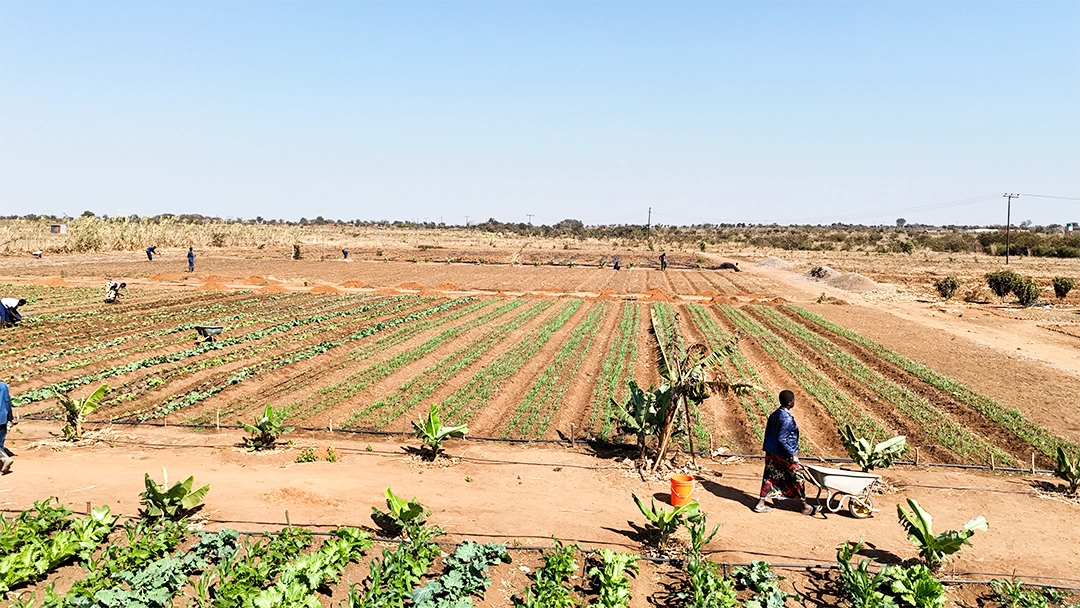Wheat Cultivation at Kuwala Farm.
Kuwala Farm is taking an exciting leap forward by introducing wheat as a new crop — the first time this versatile grain has been cultivated in Malawi. Early signs are promising: golden sheaves are emerging, filling the farm with hope for a bountiful harvest. If successful, wheat could become a key component of our crop rotation, opening up new opportunities for local flour production and strengthening our community’s food security.
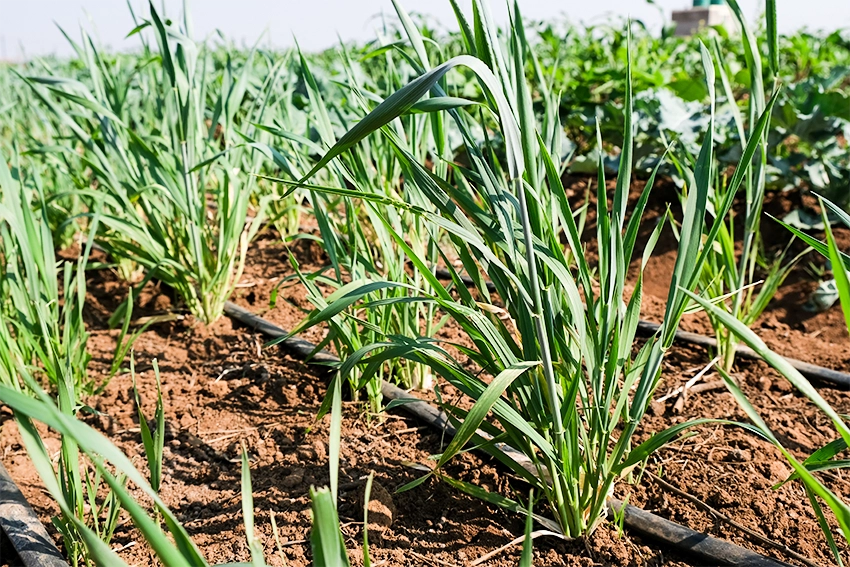
Our second irrigation farm plot is demonstrating robust growth. The crops thrive due to the exclusive use of compost and irrigation methods, which eliminate the need for commercial fertilizers and promote environmentally sustainable practices.
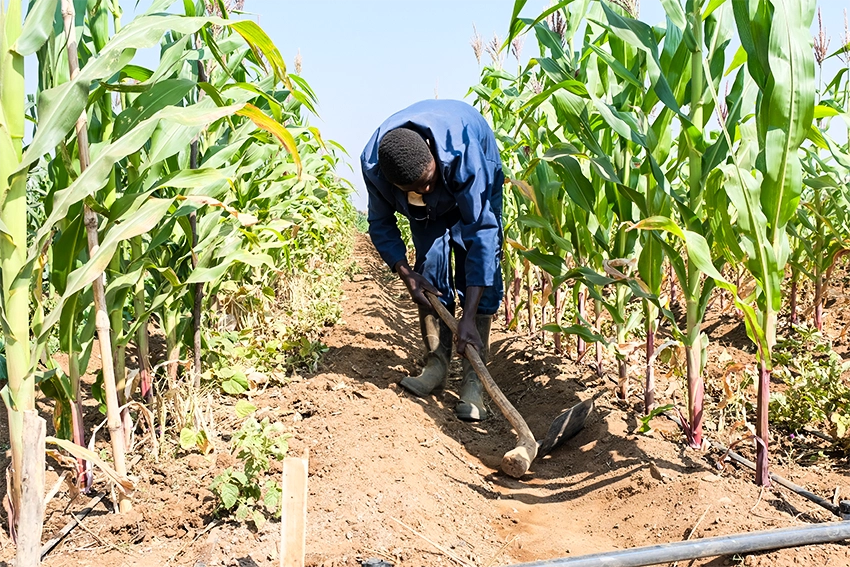
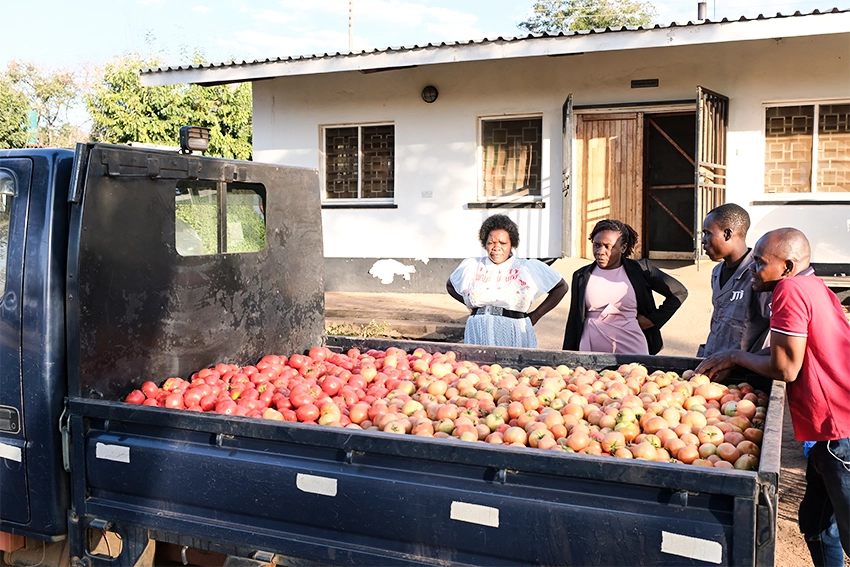
The students are back on campus and are now actively participating in various farming tasks, including cleaning a substantial bean harvest, harvesting potatoes, and transforming large quantities of tomatoes into sauce. Some tomatoes are being stored whole for future meal preparation. In line with our sustainable practices, we have integrated goats and chickens into the farm ecosystem to assist with land management and improve soil health.
A big welcome to our new Farm Manager.
Written by Patrick Luckioh
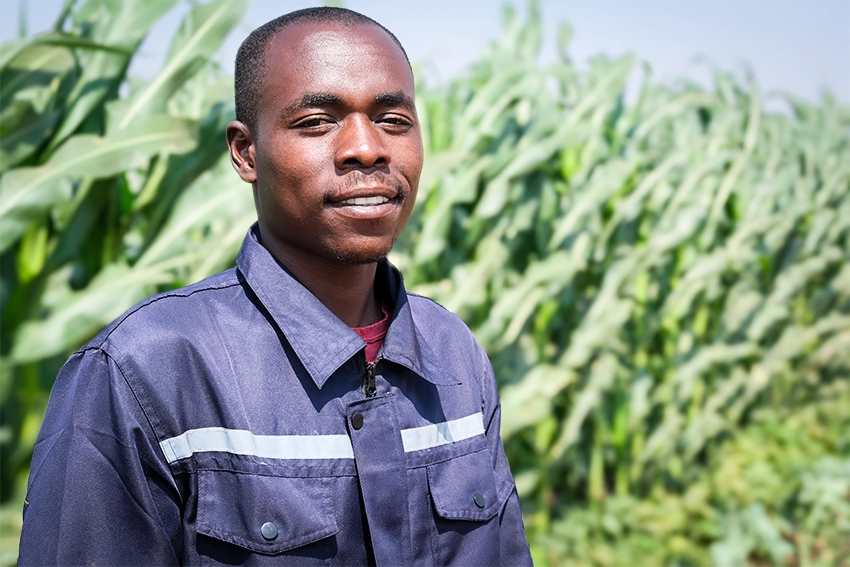
I am Patrick Jack Luckioh, from the southern side of Malawi. I was born into a family of seven, with four brothers and two sisters. In primary school, I dreamed of becoming the Minister of Agriculture. Hard work pays off, as the saying goes. My father is in the fishing business. I always found it a pleasure to help him with his company on holidays until I managed to secure a place at a public university, LILONGWE UNIVERSITY OF AGRICULTURE AND NATURAL RESOURCES (LUANAR).
Throughout my educational journey, I have encountered numerous problems, which have provided me with valuable life experiences. Enrolling in an internship with Small Farm Cities Africa (SFC) was a stepping stone. The program was intense, focusing on practical skills and learning, which later contributed to my development of communication and leadership skills. Reading the book “7 Habits of Highly Effective People” every fortnight at SFC was a game-changer for me in managing my time and overcoming challenges in the agricultural sector. Meanwhile, this experience was complemented by hands-on training in tomato production within the greenhouses. Our team managed the production of 14 greenhouses. It brought me much excitement and contentment to graduate with a B.Sc. in agronomy.
In June 2025, I came across the Kuwala Farm Manager vacancy posting. Overseeing daily operations at Kuwala Farm, monitoring and supervising them, is my daily endeavour. Our collective mission is to build a self-sufficient school that provides diverse, nutritious food in a highly sustainable way. Managing the greenhouse, irrigation sites, and livestock site for the farm in collaboration with the Kuwala team is a great and promising approach to achieving the goals.
Companion planting is just one strategy employed at the Campus for sustainability and food security.
With companion planting and high diversity at the farm, personal and career development have been accelerated and doubled. I found it worth sharing that the system adopted at the Kuwala Farm, which involves feeding the soil with organic materials like compost and manure, companion planting, livestock, and a greenhouse, creates a tight, closed-loop system where each activity depends on the others, forming a sustainable system where people and nature thrive together.
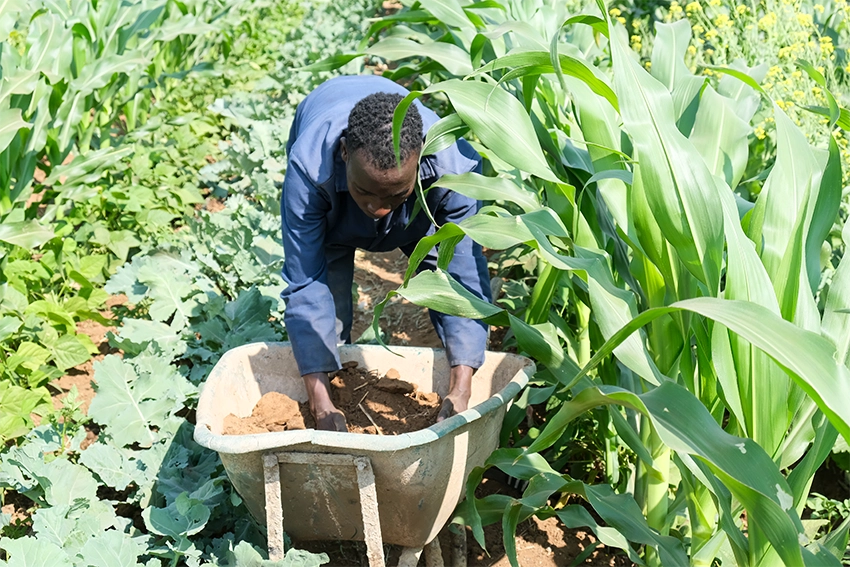
Work combines various elements — from crop cultivation and our new livestock management program, to composting techniques, advanced irrigation systems, and food preservation methods. A shared mission is at the heart of it all: to nurture a more self-sufficient ecosystem. It isn’t just a seasonal effort focused on a single crop; it’s a bold, long-term vision for sustainable agricultural growth that aims to transform how we farm and live.
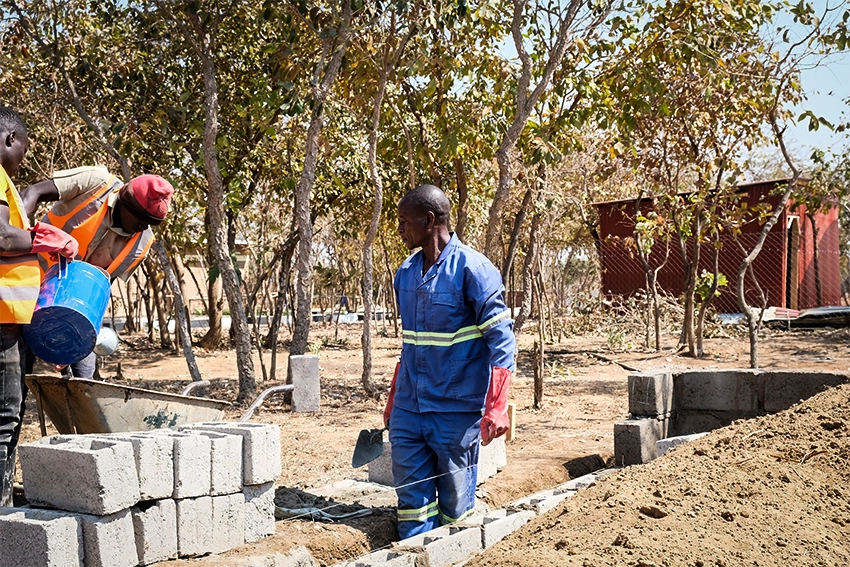
Working with our Canadian partners and sharing ideas across the ocean.
Patrick collaborates closely with our dedicated Farm Team and board members based in Canada. Despite the thousands of miles that separate them, they maintain a strong connection through a scheduled weekly meeting.. During these sessions, they comprehensively discuss the farm’s multifaceted planning and progress. It encompasses every stage, from the initial design and plotting of the land to the intricate processes of harvesting and finishing.
Patrick continues, “As the Farm Manager, I am deeply committed to doing whatever is necessary—past, present, and future—to ensure the success of our farm, team, and institution. Embracing sustainable practices may not yield immediate benefits, but I firmly believe that these efforts are paving the way for a prosperous future in the long run.”
—Edited for length.
